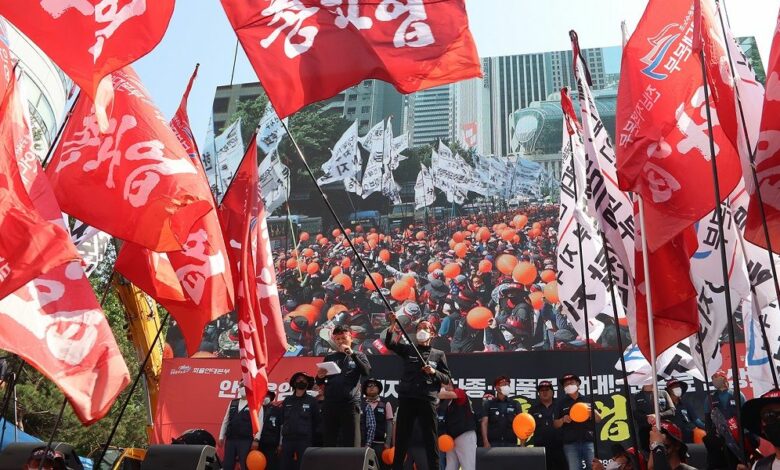Seoul issues jail threat in bid to end trucker strike

South Korea’s government issued an order Tuesday for some of the thousands of truck drivers who have been on strike for the past six days to return to work. However, the strike’s organisers have vowed to defy the order, even with the threat of jail terms hanging over them.
The order was approved in a cabinet meeting called by president Yoon Suk Yeol and targeted about 2,500 drivers of cement trucks among a broader group of truckers participating in the walkout.
Yoon said the truckers’ strike threatens to “devastate the foundation of our industries,” citing delays in deliveries of materials such as cement and steel to construction sites and factories.
“There’s no way to justify the act of taking the lives of people and the national economy as hostage to accomplish their own interest,” Yoon said.
Thousands of members of the Cargo Truckers Solidarity union have been striking since last Thursday, in their second nationwide walkout since June, calling for the government to extend and expand a system calculating minimum wages based on operating costs that is due to expire by the end of the year. The unions are calling for the so-called safe rates, which currently apply to the haulage of bulk cement and containers, to be made permanent and coverage extended to all vehicle and freight types.
“Cargo workers who drive overnight while scrambling to cope with rising prices and fuel costs without the protection of a basic social safety net are being pushed into systemic disaster situation,” the group said in a statement, calling the back to work order a “martial” law imposed on strikers.
The latest government numbers show container port throughput was 21% of normal levels on Monday morning, with Gwangyang, Pyeongtaek-Dangjin and Ulsan ports completely shut by the strikers.
